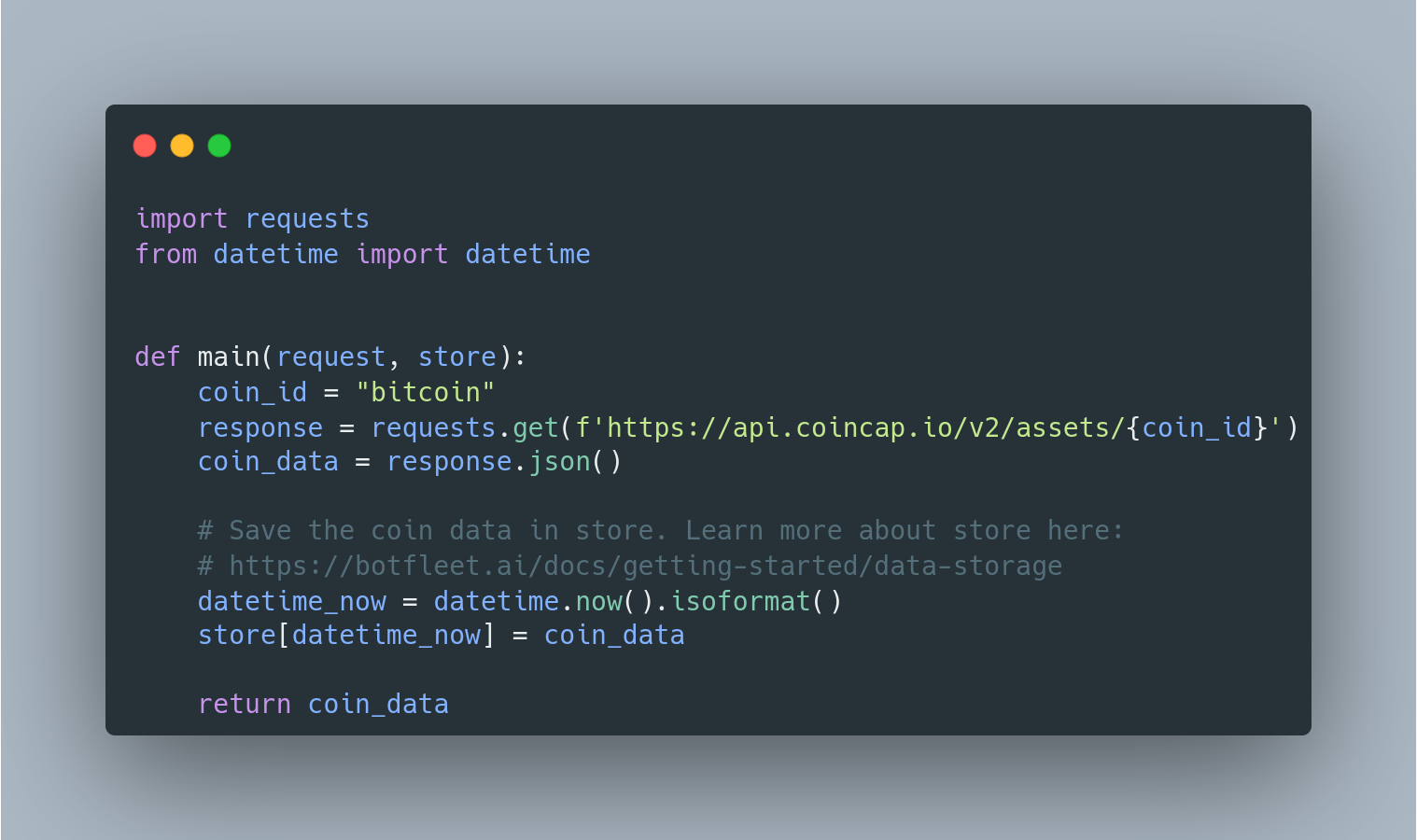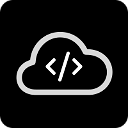BotFleet
Python Cloud Functions
Use your Python scripts to create bots and deploy them in the cloud.
During each execution, every bot has access to store, which is a dedicated database that can be used to save and retrieve data.
Here's an example of a bot that fetches cryptocurrency data and saves it in store.

Here's a detailed look at its features and functionalities:
Deployment of Python Bots in the Cloud: Users can use their Python scripts to create bots and deploy them on the cloud. This process eliminates the need to manage a separate database as BotFleet provides built-in data storage support.
Data Storage: Each bot has access to store, a free key-value database that allows for persistent and dedicated storage. This feature is designed to store and retrieve data efficiently during bot execution.
Execution Flexibility: Bots can be scheduled for execution at specific times or executed manually. This flexibility is facilitated through BotFleet's user interface, REST API, and Python SDK.
REST API and Python SDK Integration: BotFleet offers a REST API and Python SDK, enabling users to perform various tasks such as creating and executing bots programmatically.
Bot Components: Creating a bot on BotFleet involves three key components: the script, requirements, and environment variables. The platform allows users to input these components easily through its user interface.
User Interface: BotFleet provides a user-friendly interface that allows users to create bots directly from the UI or via the REST API and Python SDK.
Script Execution: Users write their Python script, which must include a def main function. This function is the entry point for bot execution.
Requirements and Environment Variables: Users can specify Python package requirements and environment variables that their script depends on, enhancing the bot's functionality and customization.
Scheduled and Manual Execution: Bots can be executed according to a schedule using cron expressions or manually through the platform's interface or programmatically via the SDK.
Logging and Return Values: BotFleet supports logging using the print function or the logging module. The return value of the main function must be JSON-serializable, and these can be viewed from the UI or retrieved via the REST API and Python SDK.
BotFleet's approach to serverless bot deployment and execution is designed to simplify the process of automating tasks using Python scripts. Users can deploy a demo bot for free to experience the platform's capabilities firsthand.









